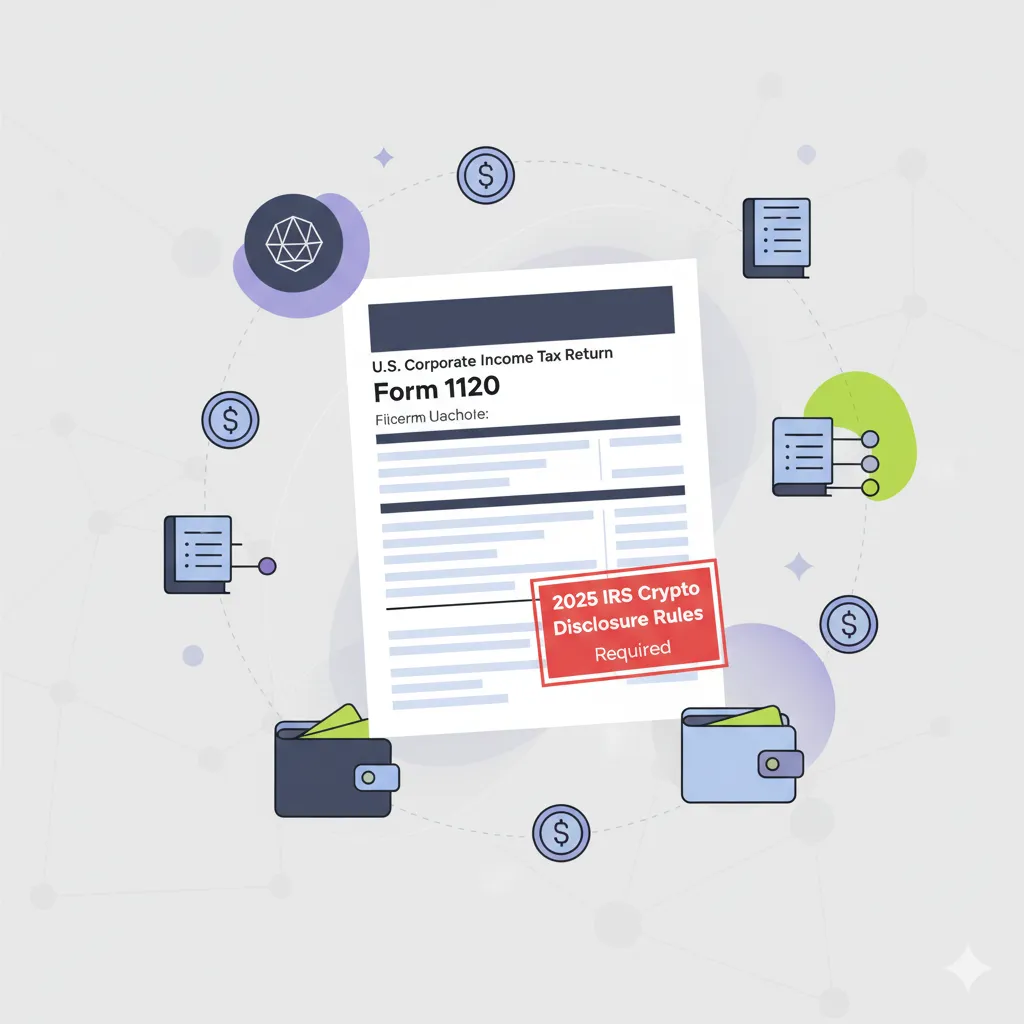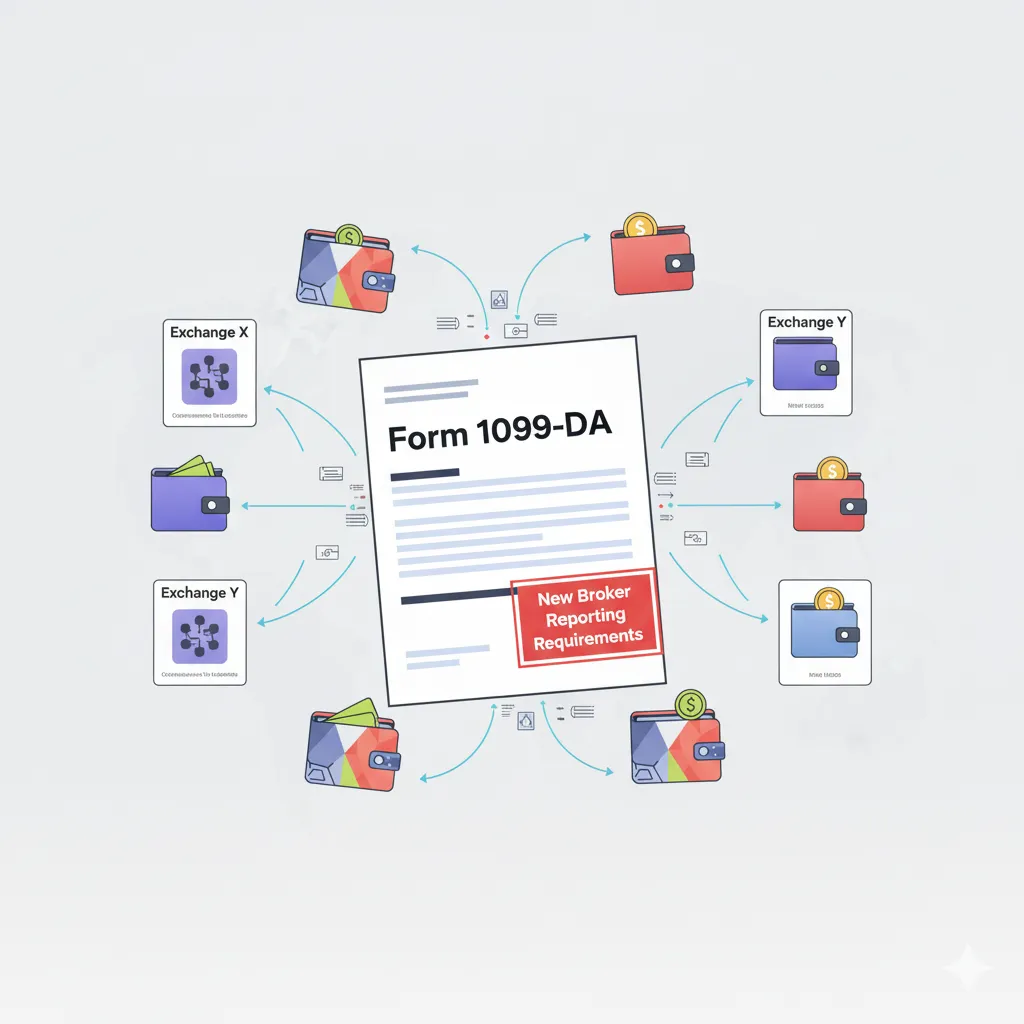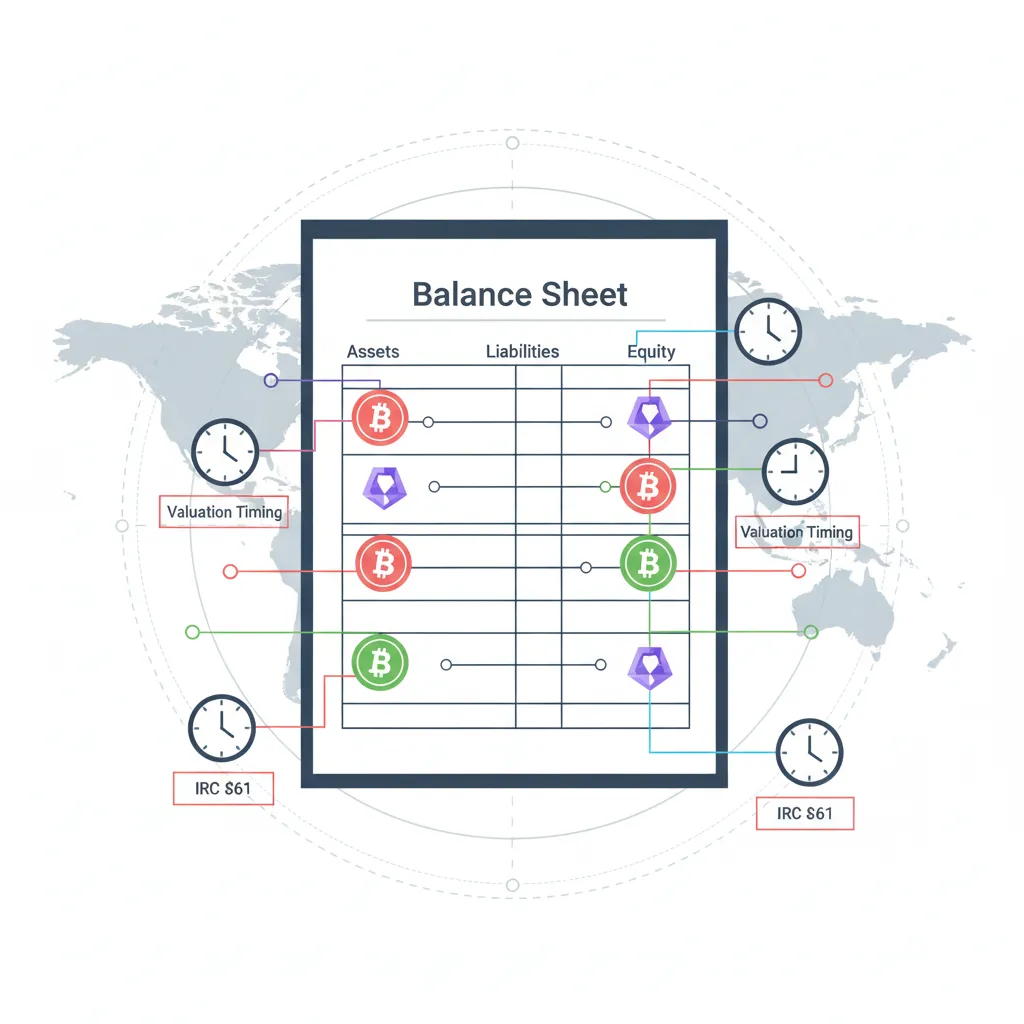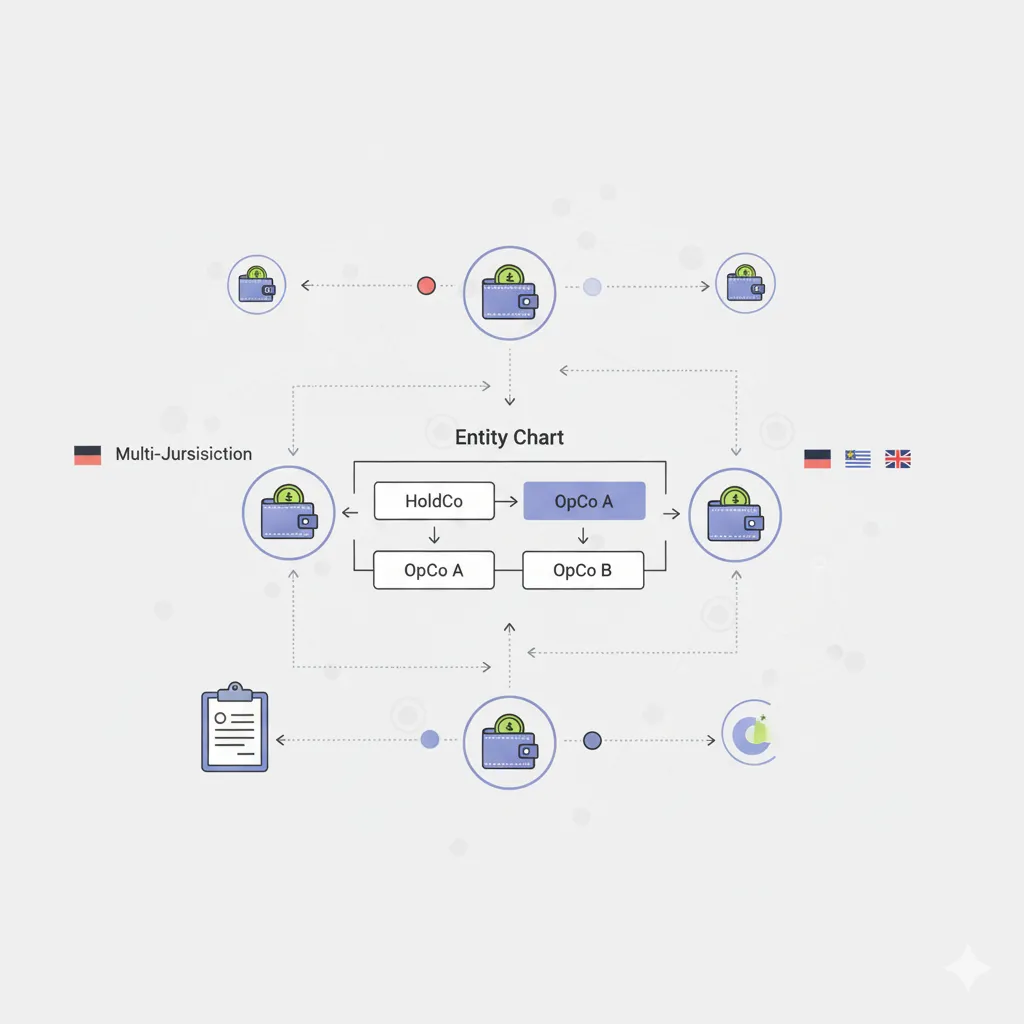Strategic International Tax Planning for Global Crypto Operations
The globalization of cryptocurrency markets has created unprecedented complexity for businesses operating across multiple jurisdictions. With the implementation of the Crypto-Asset Reporting Framework (CARF) and enhanced international information sharing, crypto founders can no longer rely on geographic arbitrage to minimize tax obligations.
The New Reality of Global Crypto Taxation
Recent analysis indicates that over 75% of successful crypto startups operate across multiple jurisdictions from inception, driven by access to global talent pools and technical expertise, regulatory arbitrage opportunities in different jurisdictions, capital markets access and investor preferences, and operational efficiency and cost optimization.
Primary operational jurisdictions include the United States as the largest crypto market with comprehensive regulatory framework, European Union with harmonized approach through MiCA (Markets in Crypto-Assets) regulation, Singapore as a pro-crypto regulatory environment with clear operational guidelines, Canada with sophisticated regulatory framework and clear tax treatment, and Switzerland as an established crypto hub with favorable tax and regulatory environment.
CARF Implementation and Global Information Sharing
CARF represents the most significant development in international crypto tax compliance since the creation of Bitcoin. Developed by the OECD and implemented beginning in 2025, CARF creates automatic information exchange regarding crypto asset transactions between participating jurisdictions.
Covered transactions include exchanges between crypto assets and fiat currencies, transfers of crypto assets in exchange for consideration, retail payment transactions using crypto assets above specified thresholds, and income from crypto asset lending, staking, and mining.
Reporting entities include crypto asset service providers with nexus in participating jurisdictions, banks and financial institutions facilitating crypto transactions, payment service providers handling crypto transactions, and custodial wallet providers and institutional custody services.
Information reported includes customer identification information and tax residency, account balances and transaction volumes, details of specific crypto asset transactions, and cross-border transfer information and counterparty data.
CARF vs. Traditional Tax Reporting Comparison
United States International Crypto Tax Framework
The Foreign Account Tax Compliance Act (FATCA) creates significant reporting obligations for U.S. persons with foreign crypto holdings. Form 8938 (FATCA) requirements include specified foreign financial assets exceeding $50,000 threshold, maximum aggregate value during the tax year, income generated from foreign crypto assets, and foreign exchange gains and losses.
FinCEN Form 114 requirements cover foreign financial accounts, including certain crypto assets. Covered accounts include foreign crypto exchange accounts, custodial foreign wallet services, foreign trading accounts and margin facilities, and participation in foreign crypto investment funds. Reporting thresholds include aggregate value exceeding $10,000 at any time during the year, all foreign accounts must be reported not just those exceeding threshold, and penalties for non-compliance can exceed account values.
FATCA Reporting Requirements
FBAR Coverage Analysis
European Union MiCA and Tax Coordination
The EU's MiCA regulation creates harmonized crypto asset regulation across 27 member states, with significant tax implications. Operational requirements include authorization requirements for crypto asset service providers, standardized reporting and compliance procedures, consumer protection and disclosure requirements, and operational resilience and governance standards.
Tax coordination mechanisms include enhanced information sharing between EU member states, coordinated approach to crypto asset classification, harmonized reporting standards for cross-border transactions, and integration with existing tax directives and information exchange agreements.
EU Tax Coordination Mechanisms
Strategic Entity Structure Planning
Delaware C-Corporation with International Subsidiaries
This structure provides U.S. venture capital and institutional investor compatibility, professional management and governance standards, access to U.S. capital markets and strategic partnerships, and clear intellectual property and operational structure.
International subsidiary considerations include Singapore subsidiary as operational hub for Asian markets, Swiss subsidiary for European operations and institutional services, Cayman subsidiary for international investment and treasury functions, and Canadian subsidiary for North American operational coordination.
Transfer Pricing Implications
International crypto operations must comply with transfer pricing rules requiring arm's length pricing for inter-company transactions. Significant transfer pricing areas include intellectual property licensing for crypto technology, management services and operational support, inter-company crypto asset transfers and trading, and shared service arrangements and cost allocation.
Documentation requirements include master file and local file documentation, transfer pricing studies for material transactions, economic analysis supporting pricing decisions, and regular updates for changing business models.
Common International Structures and Tax Implications
Cayman Holding Company Structure
Many crypto businesses utilize Cayman Islands holding companies for international operations. Benefits include no corporate income tax on non-Cayman source income, sophisticated legal framework for complex transactions, institutional investor and exchange familiarity, and flexible corporate governance and operational structure.
Risks and considerations include U.S. controlled foreign corporation (CFC) rules may apply, Subpart F income recognition for certain crypto activities, GILTI (Global Intangible Low-Taxed Income) implications, and enhanced reporting requirements under FATCA and FBAR.
Singapore Operational Hub Model
Singapore offers a sophisticated regulatory framework for crypto operations with territorial tax system with foreign source income exemption, competitive corporate tax rates (17%), extensive tax treaty network, and clear regulatory guidance for crypto businesses.
Operational advantages include sophisticated financial infrastructure and banking relationships, access to Asian markets and talent pools, English-language legal and business environment, and government support for crypto and blockchain innovation.
Substance Requirements and Anti-Avoidance Rules
Cayman entities conducting "relevant activities" must demonstrate economic substance. Crypto-relevant activities include intellectual property business (crypto technology licensing), holding company business (crypto asset investments), and investment fund management (crypto fund operations).
Substance requirements include adequate number of qualified employees in Cayman, adequate physical presence and office space, core income-generating activities conducted in Cayman, and regular board meetings and decision-making in jurisdiction.
U.S. shareholders owning more than 50% of foreign crypto companies face complex anti-deferral rules. Subpart F income includes passive investment income from crypto holdings, related party transaction income, and insurance income and certain service income. GILTI provisions include global intangible low-taxed income inclusion, minimum tax on foreign crypto business income, and deduction limitations and credit mechanisms.
Practical Compliance Strategies
Successful international crypto operations require sophisticated compliance coordination including centralized transaction monitoring across all jurisdictions, real-time reporting capability for multiple tax authorities, integration with local tax preparation and filing systems, and professional advisor communication and coordination platforms.
Professional service provider coordination involves lead tax advisor coordination across jurisdictions, local tax counsel in each operational jurisdiction, regular communication and planning meetings, and standardized documentation and reporting procedures.
Risk Management for International Operations
International crypto operations must monitor regulatory developments across multiple jurisdictions including tax law changes and new reporting requirements, regulatory guidance and enforcement actions, international treaty developments and information sharing agreements, and industry best practices and professional standards.
Contingency planning includes alternative jurisdiction analysis and contingency planning, professional advisor relationships in multiple jurisdictions, technology infrastructure flexibility for changing requirements, and legal structure modification capabilities.
Advanced International Tax Planning
Proper use of tax treaties can provide significant benefits for international crypto operations. Common treaty benefits include reduced withholding taxes on inter-company dividends, elimination of double taxation on business income, mutual agreement procedures for dispute resolution, and information exchange limitations and protections.
Anti-treaty shopping rules include principal purpose test (PPT) under BEPS Action 6, limitation of benefits (LOB) provisions in U.S. treaties, substance requirements for treaty eligibility, and economic substance documentation requirements.
Treaty Shopping and Legitimate Planning
Treaty Benefits Framework
Emerging Jurisdictions and Opportunities
Portugal has emerged as an attractive jurisdiction for crypto operations with no capital gains tax on crypto transactions for non-professional activities, favorable treatment for long-term crypto investments, EU residency and business access, and growing crypto ecosystem and professional services.
El Salvador's adoption of Bitcoin as legal tender creates unique opportunities including no capital gains tax on Bitcoin transactions, government support for Bitcoin-based businesses, and streamlined regulatory framework for crypto operations.
Dubai's comprehensive crypto regulatory framework attracts international operations with clear regulatory guidelines and operational certainty, no personal income tax for UAE residents, strategic location for global crypto operations, and government commitment to crypto industry development.
Future Trends in International Crypto Taxation
Enhanced global coordination includes CARF expansion to additional jurisdictions and transaction types, enhanced information sharing and audit coordination, standardized crypto asset classification and treatment, and professional standards development for cross-border compliance.
Regional harmonization efforts include EU continued integration through MiCA and tax directives, ASEAN coordination on crypto regulatory frameworks, Americas regional cooperation on crypto enforcement, and G20 coordination on global crypto tax standards.
Conclusion
International crypto tax compliance now requires sophisticated planning, professional coordination, and comprehensive compliance systems across multiple jurisdictions. CARF implementation eliminates geographic arbitrage opportunities and creates unprecedented information sharing between tax authorities. Success demands treating compliance as a competitive advantage and investing in professional-grade international coordination. The businesses that thrive will be those with institutional-quality compliance infrastructure and strong professional advisor relationships across all operational jurisdictions. Next step: Master token valuation and income recognition timing to complete your comprehensive crypto compliance framework.

.svg)












